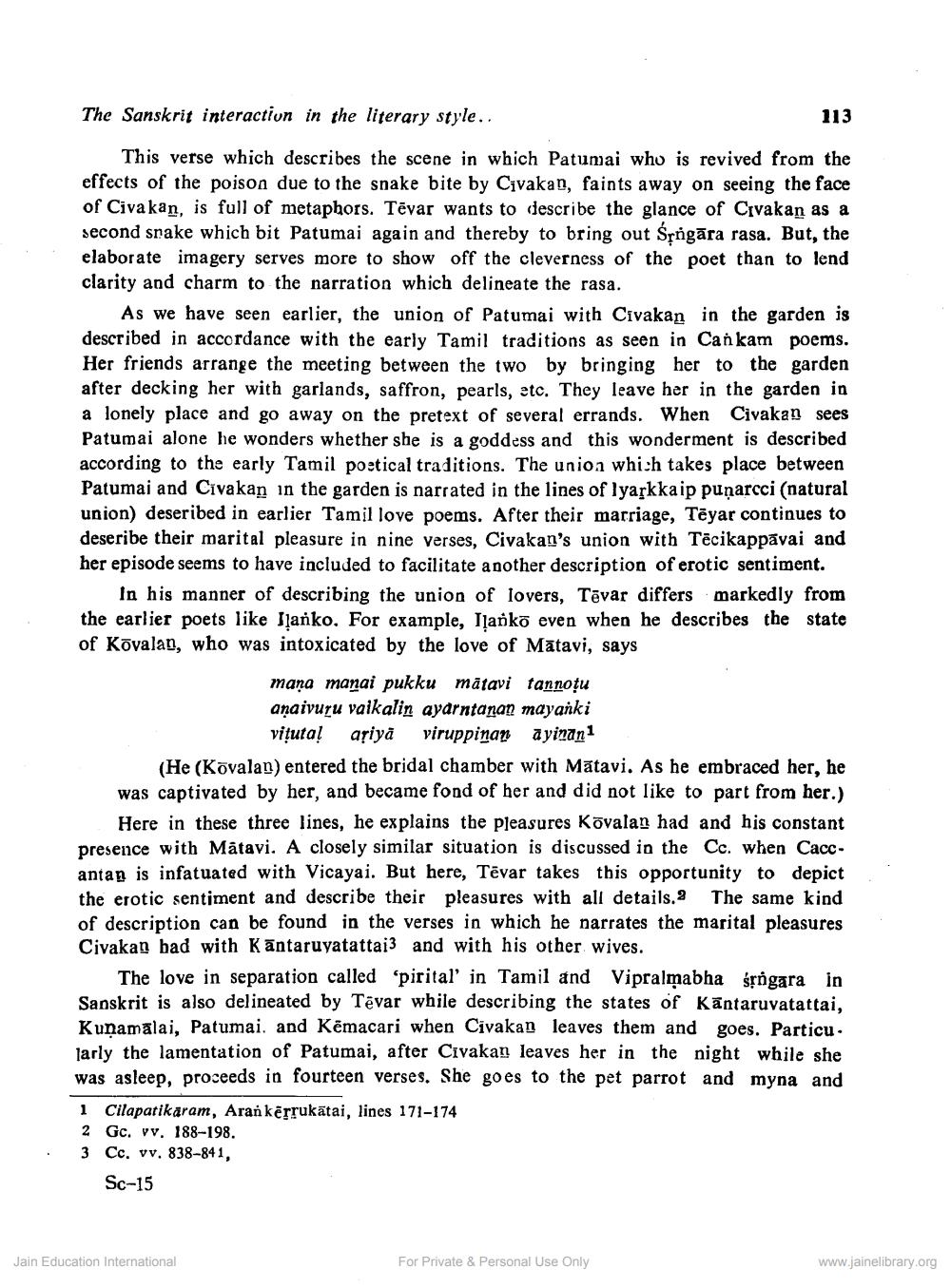________________
The Sanskrit interaction in the literary style..
113
This verse which describes the scene in which Patumai who is revived from the effects of the poison due to the snake bite by Civakan, faints away on seeing the face of Civakan, is full of metaphors. Tēvar wants to describe the glance of Civakan as a second snake which bit Patumai again and thereby to bring out Srngāra rasa. But, the elaborate imagery serves more to show off the cleverness of the poet than to lend clarity and charm to the narration which delineate the rasa.
As we have seen earlier, the union of Patumai with Civakan in the garden is described in accordance with the early Tamil traditions as seen in Cankam poems. Her friends arrange the meeting between the two by bringing her to the garden after decking her with garlands, saffron, pearls, etc. They leave her in the garden in a lonely place and go away on the pretext of several errands. When Civakan sees Patumai alone he wonders whether she is a goddess and this wonderment is described according to the early Tamil postical traditions. The union which takes place between Patumai and Civakan in the garden is narrated in the lines of Iyarkkaip puņarcci (natural union) deseribed in earlier Tamil love poems. After their marriage, Tēyar continues to deseribe their marital pleasure in nine verses, Civakan's union with Tēcikappavai and her episode seems to have included to facilitate another description of erotic sentiment.
in his manner of describing the union of lovers, Tēvar differs markedly from the earlier poets like Jlanko. For example, llaoko even when he describes the state of Kõvalan, who was intoxicated by the love of Mātavi, says
mana manai pukku mātavi tannoțu anaivuru vaikalin ayarntanan mayanki
vițuta! asiya viruppinan ayinan1 (He (Kovalan) entered the bridal chamber with Matavi. As he embraced her, he was captivated by her, and became fond of her and did not like to part from her.)
Here in these three lines, he explains the pleasures Kovalan had and his constant presence with Matavi. A closely similar situation is discussed in the Cc. when Caccantap is infatuated with Vicayai. But here, Tēvar takes this opportunity to depict the erotic sentiment and describe their pleasures with all details.2 The same kind of description can be found in the verses in which he narrates the marital pleasures Civakan bad with Kāntaruyatattai3 and with his other wives.
The love in separation called 'pirital in Tamil and Vipralmabha sigara in Sanskrit is also delineated by Tēvar while describing the states of Kāntaruvatattai, Kunamalai, Patumai. and Kemacari when Civakan leaves them and goes. Particu. larly the lamentation of Patumai, after Civakan leaves her in the night while she was asleep, proceeds in fourteen verses. She goes to the pet parrot and myna and
•
1 Cilapatikaram, Arankērrukätai, lines 171-174 2 Gc. vv. 188-198. 3 Cc, vv. 838-841,
Sc-15
Jain Education International
For Private & Personal Use Only
www.jainelibrary.org




